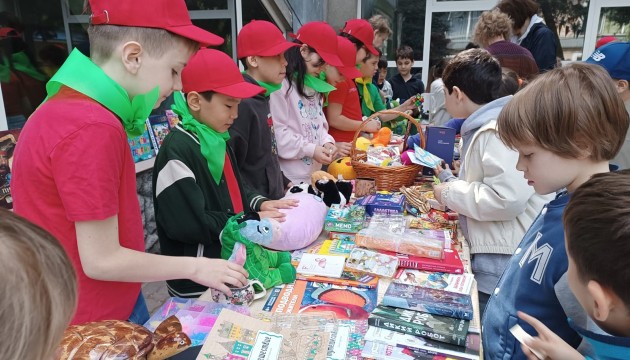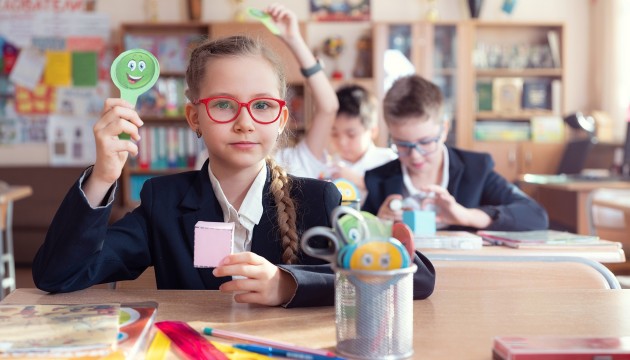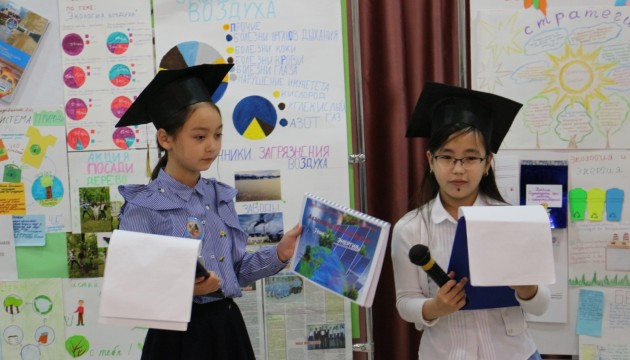The 21st century demands that individuals be mobile and creative in their thinking, as well as innovative and flexible in applying knowledge across various fields of activity. School is a critical element in this process. As a result, students should develop a holistic, socially oriented view of the world, recognizing its unity and diversity in nature, peoples, cultures, and religions.
The leading role in solving the tasks is given to the research approach in teaching, with the involvement of students in interdisciplinary research and design. It is expected that students will learn to conduct constructive research, applying and developing the acquired skills, develop an understanding of the integrity of the universe, learn to articulate their ideas, make responsible decisions, recognize their capabilities, and engage in socially significant actions.
The starting point for research and design in the PYP programme is the research programme, which the school develops per six transdisciplinary themes (who we are, where we are in space and time, how we express ourselves, how the world functions, how we organise ourselves, existence on the planet). The following criteria are taken into account in developing each research theme:
- Engagement
- Relevance
- Perspective
- Significance
The transdisciplinary themes, along with the subject areas (language, mathematics, social learning, science, personal, social, and physical education, art), aim to acquire knowledge, form concepts, and develop skills that go beyond individual subject disciplines and contribute to the global education of students.
Conceptual understanding is an essential and sustainable learning objective in PYP. Learning using concepts (form, function, causality, change, relationship, perspective, responsibility) leads to a deeper understanding of ideas and enables students to apply what they learn across curriculum areas and real-life situations.
Throughout their primary school years, students will acquire, develop and apply a set of skills that are valuable not only for teaching and learning within the school but also outside of school, in real life situations (thinking skills; social skills; communication skills; self-management skills; research skills).
PYP promotes positive relationships that foster the well-being of both individuals and the community as a whole. The College school community encourages and motivates the expression of positive attitudes towards oneself, others, and the world around us (appreciation, commitment, confidence, cooperation, creativity, curiosity, empathy, independence, enthusiasm, honesty, respect, patience)
The learning experience is expected to enable students to take independent, responsible actions on their initiative, both in and outside of school, and to contribute to a continuous learning process. The school supports students in choosing actions, making meaningful decisions, and motivates them to reflect on the effectiveness of their actions.
Following the beliefs and values of PYP, as well as the requirements of the State Education Standard of the Republic of Kazakhstan, the school has developed and implemented an assessment policy that ensures continuous, criteria-based, and transparent evaluation of students' progress. Feedback from assessments is provided by maintaining student portfolios, writing reports on students' progress, and holding parent-teacher conferences.


The working curriculum of primary education at the college is developed in accordance with the Ministry of Education of the Republic of Kazakhstan's model curriculum. It is primarily aimed at ensuring the high-quality implementation of the State Compulsory Education Standard.
The invariant component of the curriculum for this age group encompasses educational areas, academic subjects, and a weekly and annual academic workload established by the State Educational Standard of the Republic of Kazakhstan.
The variable component is aimed at mastering the course "Reading Techniques, Meaningful Reading" by students of grades 1-4. The course helps students develop information and reading literacy skills that meet the requirements of the information society.
The curriculum of additional education for students provides for an inevitable increase in the number of weekly academic hours in English, which is studied in depth, as well as fine arts and music.
In grades 1-4, compulsory study of the courses "Fundamentals of Life Safety" and "Traffic Rules" is ensured.
When drafting the working curriculum for primary education, the order of the Minister of Education of the Republic of Kazakhstan, which determines the start and end dates of the academic year and holidays, was followed.
The elimination of student overload is achieved through the college's approved working hours, the organization of self-study, and a well-structured homework schedule.
The health-preserving function of the working curriculum is ensured through the implementation of the sanitary rules "Sanitary and Epidemiological Requirements for Educational Facilities", approved by Order of the Minister of Health of the Republic of Kazakhstan No. 76 dated May 8, 2021.

As part of the College's ongoing program of interdisciplinary design research, the Research Academy competition is held. This small scientific organization conducts research in various fields of knowledge, including science, art, and sports. All interested elementary school students are eligible to participate in the competition. The goal of the competition is to support the desire of students actively engaged in research to create their mini-projects that have local or global significance and extend beyond the school.

























